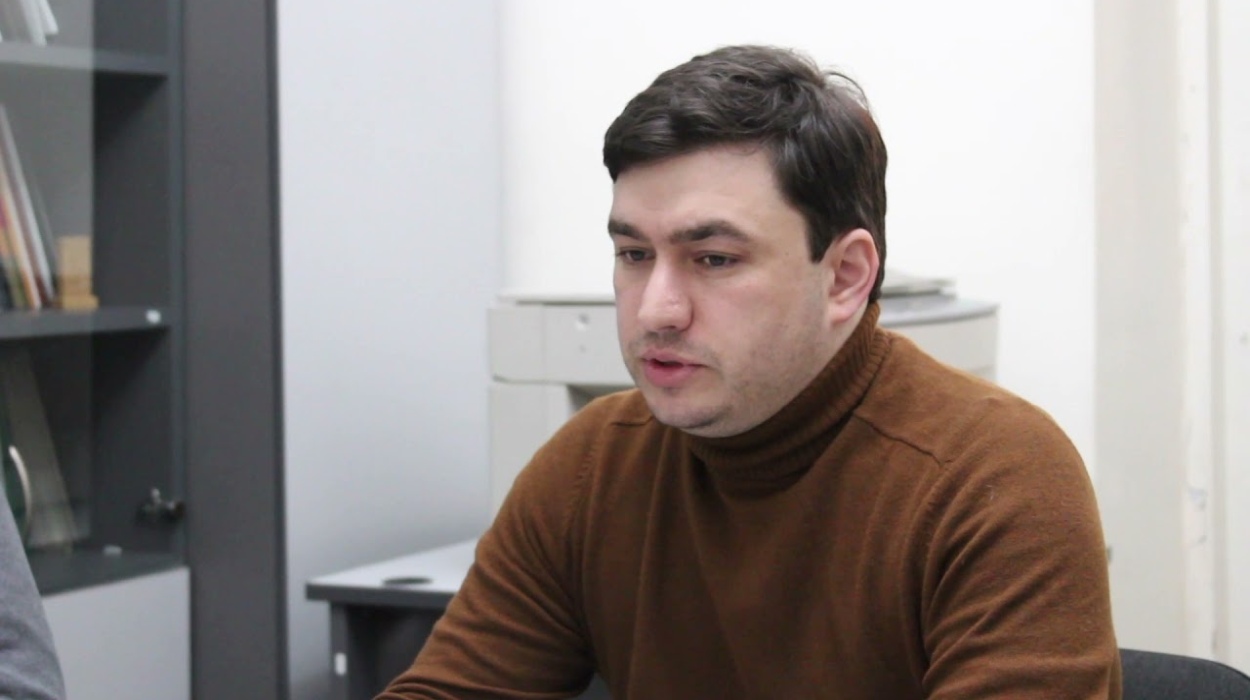Legal Disputes Threaten Preservation of Sukhum's Historic Core

Representatives and experts gather in Sukhum, deliberating on the city's historical preservation amidst legal disputes.
Ekho Kavkaza ― In a recent press conference held in Sukhum, representatives from the Sukhum City Assembly, experts from the State Department for the Protection of Historical and Cultural Heritage, and trial witnesses discussed the implications of the city administration's decisions against the City Assembly. They opined that nullifying the City Assembly's decisions, which aimed to regulate the unorganised development in the heart of the capital, might lead to significant social repercussions and the eventual disappearance of the historical centre.
City administration lacks the legal authority to grant construction permissions in the city centre.

Said Gezerdava
Said Gezerdava, representing the Sukhum City Assembly in court, highlighted the cases currently lost by the Assembly. He remarked that the city administration's decision to file a lawsuit was driven by "public clamour." Gezerdava criticised the court for siding with the city administration, even when they failed to establish their authority to grant construction permissions:
"The Sukhum administration presented a peculiar set of arguments. They relied on archival historical documents, some dating back to 1940 and others to the 1980s. Shockingly, they couldn't provide any substantial evidence in court affirming their rights to authorise construction. It's apparent that the current legislation does not explicitly grant the Sukhum city administration this authority. Such permissions seem to be buried in secondary or tertiary documents. Considering we lack a town-planning code, building rules, or a master plan, one can only speculate on the future of our city's development."
Gezerdava also shed light on an unprecedented situation in Abkhazia's history where two government branches are at legal odds. He described the trial as a power play, with the executive branch trying to curtail the rights of local self-government and proving its dominance. The courts have surprisingly favoured the executive branch, neglecting the rights of local self-governing entities as enshrined in the Constitution.
Judge Mimoza Tsushba of the Supreme Court sided with the City Assembly in two trials, expressing dissent, but unfortunately, her opinions were in the minority.
It became evident during the trials that there's a stark contradiction between the Constitution and the law "On governance in administrative-territorial units." The court, however, declined the request to seek the Constitutional Court's intervention.
Neither the prosecutor's office nor experts from the State Department for the Protection of Historical and Cultural Heritage participated in the trials, despite the Assembly's insistence.
Cabinet's regulations fail to prioritise the preservation of the historical centre.

Sandor Kaitan
Sandor Kaitan, an expert from the State Office for the Protection of Historical and Cultural Heritage, criticised recent height regulations for construction projects. The primary concern isn't just the height but also the density of these buildings:
"The historical part of the city remains undefined. Even seasoned professionals, including archaeologists and architects, don't agree on this matter. Unknown is the author of these regulations that disregard monuments and vital architectural landmarks."
+ The Defence in the Sukhum High-Rise Construction Case Requests Judge's Recusal
+ Arda Inal-ipa on Safeguarding Sukhum's Architectural Legacy Amidst Modernisation
+ Sukhum Court Annuls City Assembly Decisions Pertaining to Capital Construction
According to Kaitan, the 2009 decisions of the Sukhum City Assembly effectively curbed random development and shielded historical landmarks from destruction. However, the Cabinet's recent regulations don't seem to prioritise the preservation of the city's historical core.
Our rights and our very space are at risk.

Naida Abidova
Naida Abidova, from the youth movement ""Ҳараҳпицунда" ("Our Pitsunda")," reflected on the trials:
"We witnessed arguments presented by the City Assembly and lawyers, only to be met with an impenetrable barrier of misunderstanding. The decision was seemingly preordained, but we clung to a sliver of hope that our presence, our arguments might make a difference. The collective disappointment was palpable when the judgement was announced. The fact that 'public outrage' is a driving force behind these lawsuits is troubling. The law should uphold public morality and protect our values, not undermine them."
Gezerdava warns of the potential repercussions of the court's decisions, foreseeing unchecked development and the eventual erasure of Sukhum's historic centre.
This news was published by Ekho Kavkaza and is translated from Russian.